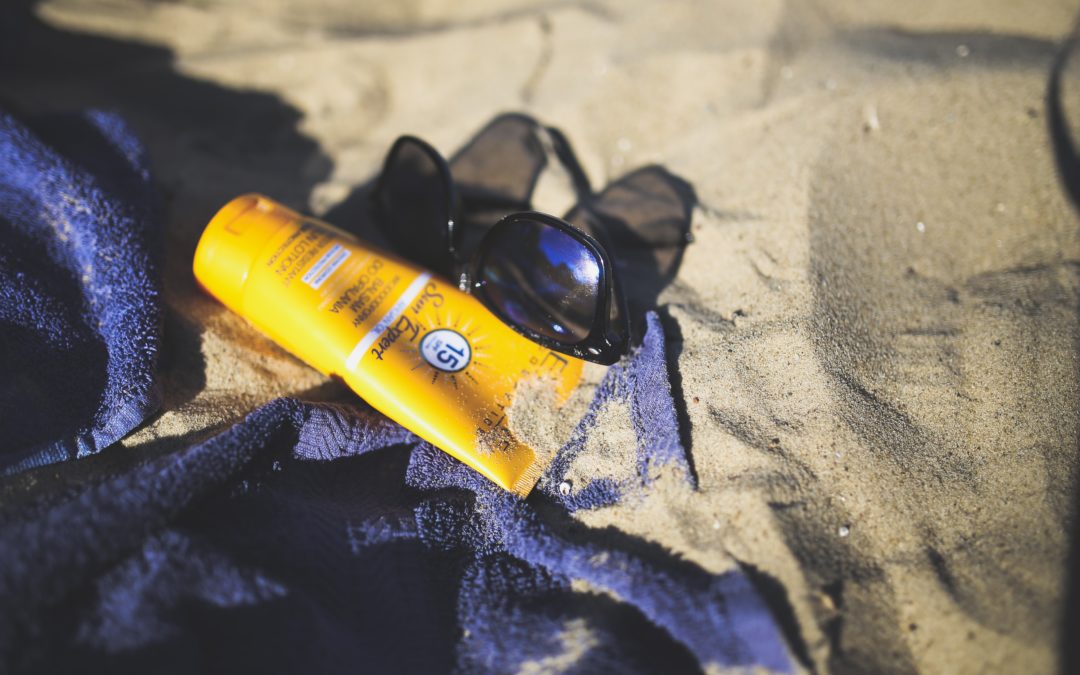With summer in full swing, I thought it would be a good time to share some thoughts about sun exposure and whether or not we should be wearing sunscreen. While this topic is pretty hotly contested, my goal is to provide you with the best recommendation possible, drawing on the literature that has been published, as well as my own experiences and various other sources I believe are reputable.
I’m sure you’ve heard it all about how dangerous the sun is and how it can give you skin cancer if you’re constantly exposed to it. We’ve been inundated with this information since the time we were children. I distinctly remember my parents always telling me to put sunscreen on before going outside as if I was going to catch fire the moment I stepped into the sunlight, and granted, I did get burned a lot, but I was spending A LOT of time in the sun during the summer months coming off a long, cold, and dark Chicago winter. So, I definitely can’t blame the parents for wanting to protect me, and I thank them for caring so much.
And who can forget the constant, over-hyped bombardment by the good ol’ mainstream media, which always seems to do a pretty good job at evoking fear and excessive emotional responses from the general public.
However, there is some important information we should know about both sun exposure and application of sunscreen. There is a way to do this sunlight exposure thing correctly without increasing your risk of skin cancer; from the sunlight AND from the sunscreen you’re using. Let’s start with why sun exposure is important in the first place.
Why sun exposure is important, within reason
If you believe that the sun’s only purpose is to shine cancer-causing radiation onto the earth and keep us all indoors, scared for our lives, I would like to put you at ease. We would not be able to live without the sun, plain and simple. The sun gives life to all living things; plants, animals, humans, etc…
You’ve most likely heard that sunlight stimulates Vitamin D production in the body, when the skin is directly exposed for a certain amount of time. This is indeed true, and Vitamin D plays an extremely important rolein the body. Oh, and by the way, this vitamin helps defend the body from skin cancer. However, the benefits of sunlight go way beyond just Vitamin D production!
Here is a list of some other very important benefits that we derive from sunlight:
- Enhanced mood: serotonin (a hormone responsible for mood regulation and feelings of well-being) is produced from exposure to sunlight
- Regulation of sleep cycles: closely linked to serotonin production. If you’re not producing enough serotonin during the day, that will affect melatonin production at night, which can have a negative impact on the quality of your sleep
- Improved immune system function through enhanced regulation of certain processes. Alpha melanocyte-stimulating hormone helps limit oxidative DNA damage (i.e. works as an antioxidant), which reduces the risk of developing melanoma. Calcitonin gene-related peptide dilates the blood vessels and protects the body against hypertension and inflammation
- Production of endorphins, which you may know are responsible for increasing tolerance to pain and promoting relaxation
- Production of Substance P, which enhances blood flow and is involved in regulating immune system function and mood disorders
- Production of melanocyte-stimulating hormone, which is responsible for skin pigmentation (i.e. skin color) and contributes to sex drive and appetite regulation
I hope that was enough to convince you about how important sun exposure is to us. If not, leave me a comment and let’s chat.
What you should know about sunscreen
I’ve been using sunscreen much more diligently in recent years than I did as a child. Having said that, I haven’t burned hardly as much or nearly as bad as I used to, which is great. However, I’ve recently become a bit more curious about the effects of sunscreen usage on the benefits of sun exposure and if it’s actually worth it to use regularly.
You may have heard that sunscreen might interfere with Vitamin D absorption and limit the beneficial effects that we get from the sun. However, a couple recent review articles that I found (hereand here) suggest that we can use sunscreen regularly without having much impairment to Vitamin D synthesis within the body. So, that’s reassuring, however, if you are deficient in Vitamin D, I would still get as much exposure to the sun as you safely can without, or before, using sunscreen.
However, what I am more concerned about is the chemicals that are used in particular sunscreens. According to the Environmental Working Group (EWG), there are a couple active ingredients in sunscreen , which we should avoid, due to their potential hormone-disrupting and carcinogenic effects when they penetrate deep in the body through repeated application of sunscreens, and when combined with long periods of sun exposure. These two ingredients are oxybenzone and retinyl palmitate.
Naturally, there is conflicting evidence that says otherwise. Of course, it is hard to find a completely conclusive study that will tell you X will always lead to Y. But I would rather play it safe and choose a sunscreen that is free of these two ingredients.
The EWG has a list of recommended sunscreens that you can check out here.
How to use sunscreen while still getting your beneficial sun exposure
I’m sure you’ve heard the phrase “even too much of a good thing can be trouble”. I’ll finish up this post by sharing my thoughts with you on how you can still get your sunlight without worrying about any deleterious effects from the sun or sunscreen.
In general, by exposing your body (i.e. arms, legs, face, and feel free to get the whole body exposed) for 10-30 minutesat least three times per week for lighter-skinned folks is a good minimum to get the benefits. Darker-skinned folks may need a bit more time in the sun (i.e. up to an hour or two).
After that amount of time in the sun, you should begin to apply sunscreen that is free of the ingredients I listed above. Use this time recommendation and your best judgment about when to begin applying sunscreen. There is something about that “gut feeling” that you should be listening to when it’s telling you it’s time. There’s a reason why the gut is called the “second brain”.
Of course, if you are in the sun for hours and hours, say at the beach or participating in a long race, don’t be stupid. Use sunscreen. I always like to start my sun exposure off with natural, unfiltered sunlight on the skin, then I will make the transition to make sure I’m not getting burned.
Finally, your diet also plays a role here, duh…Making sure you’re getting enough healthy foods like berries and vegetables (i.e. foods with high amounts of antioxidants) will go a long way to maintaining healthy skin and combating any free radical damage you may sustain if exposed to the sun too long. If you’re eating a diet full of McDonald’s cheeseburgers, fries, and other highly processed garbage, along with getting frequent sunburns, you can bet your risk of health issues will probably be increased.
References
M. Natahaniel Mead. “Benefits of Sunlight: A Bright Spot for Human Health”. Environ Health Perspect. 2008 Apr; 116(4): A160–A167.
Ben Greenfield. “Is The Sun The Ultimate Source Of Health & Vitality Or Just A Giant Orange Cancer Circle In The Sky?” https://bengreenfieldfitness.com/article/lifestyle-articles/natural-sun-protection-foods/

